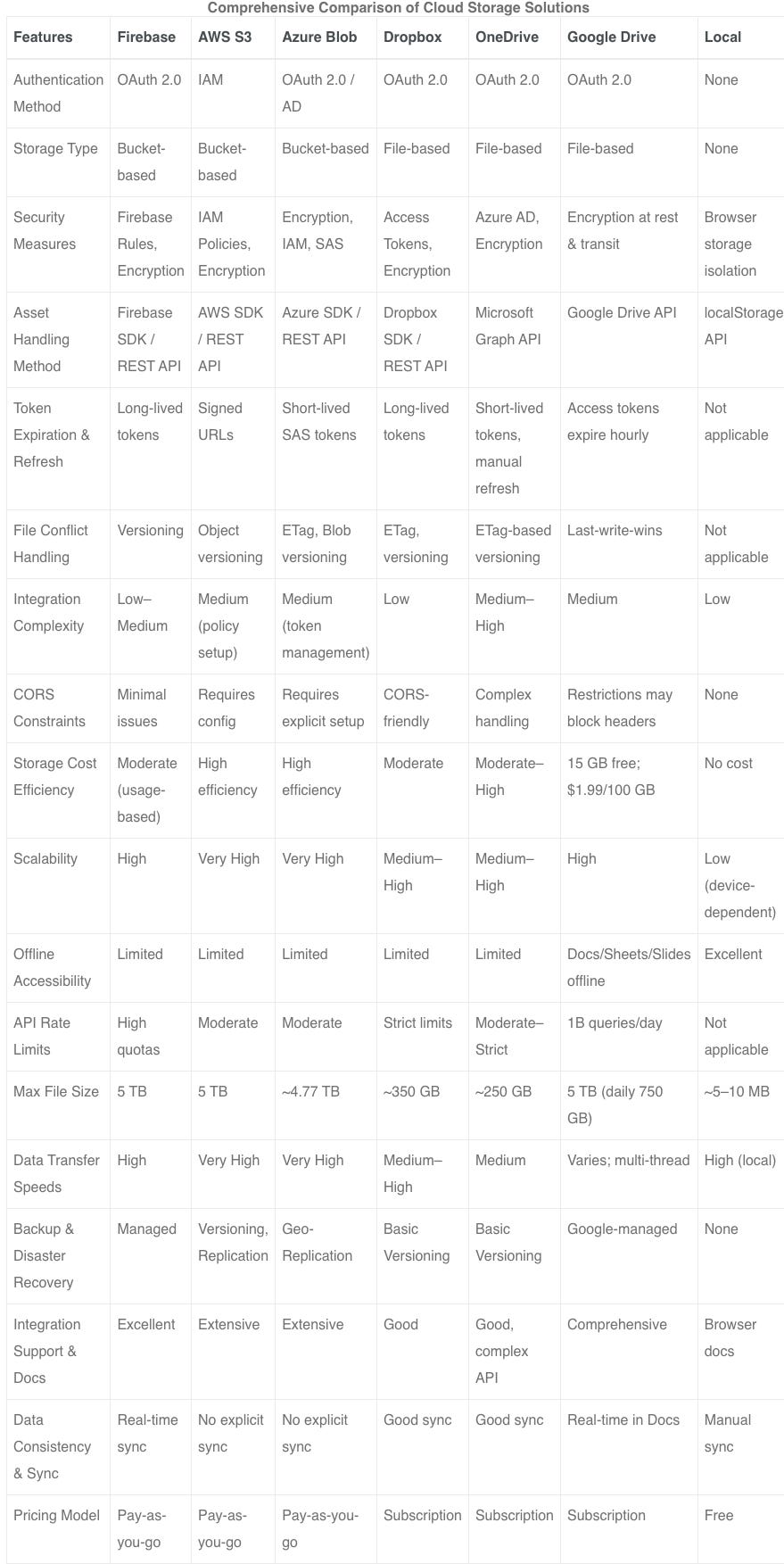Comprehensive Comparison of Cloud Storage Solutions for Developers and Businesses
Choosing the right cloud storage solution is critical because it can make or break your project. Storage plays a critical role in scalability, security, and overall efficiency for any type of application, from small real-time mobile apps to managing enterprise-scale datasets or simply sharing files across teams.
But with so many options such as Firebase, AWS S3, Azure Blob, Dropbox, OneDrive, Google Drive, and even local storage, it’s easy to get lost in the details.
In this post, we make a comprehensive, feature-by-feature comparison of leading storage platforms, helping you choose the right one for your needs.
Quick Overview of Each Solution
1 - Firebase
Best suited for mobile/web developers who need real-time sync, simple SDK integration, and scalability without much setup.
2 - AWS S3
A highly scalable, enterprise-grade object storage solution with fine-grained IAM security and global availability.
3 - Azure Blob Storage
Microsoft’s robust, pay-as-you-go storage with advanced security options and deep integration with Azure services.
4 - Dropbox
Popular with teams for file sharing and collaboration, with a developer-friendly API.
5 - OneDrive
Integrated into the Microsoft 365 ecosystem, making it ideal for businesses already using Microsoft tools.
6 - Google Drive
Familiar and easy to use, with generous free storage, making it great for personal use and small teams.
7 - Local Storage
Free and simple, but limited by device/browser constraints, making it unsuitable for larger apps.

Key Insights
For developers: Firebase shines with real-time sync and easy SDK integration.
For enterprises: AWS S3 and Azure Blob dominate due to massive scalability, security, and disaster recovery.
For team collaboration: Google Drive and OneDrive are user-friendly with offline document editing.
For personal/low-budget projects: Local storage is free, but it is extremely limited in size and sync capabilities.
Recommendations
Startups & app builders → Go with Firebase for speed and real-time sync.
Large-scale enterprise apps → Choose AWS S3 or Azure Blob for security and scalability.
Teams already on Microsoft 365 → Stick with OneDrive for smooth integration.
Freelancers and small businesses → Google Drive is a cost-effective and flexible solution for storing and sharing files.
Final Thoughts
Cloud storage is evolving beyond just saving files. With edge computing, hybrid cloud models, and even decentralized storage (like IPFS or Arweave), the future will bring even more options for developers and businesses.
For now, choosing the right solution depends on your project scale, budget, and ecosystem. Hopefully, this comparison helped you see the trade-offs clearly.
Source: Comprehensive Cloud Storage Comparison (UiO Thesis)
Originally published at https://www.webdevstory.com on September 22, 2025.


